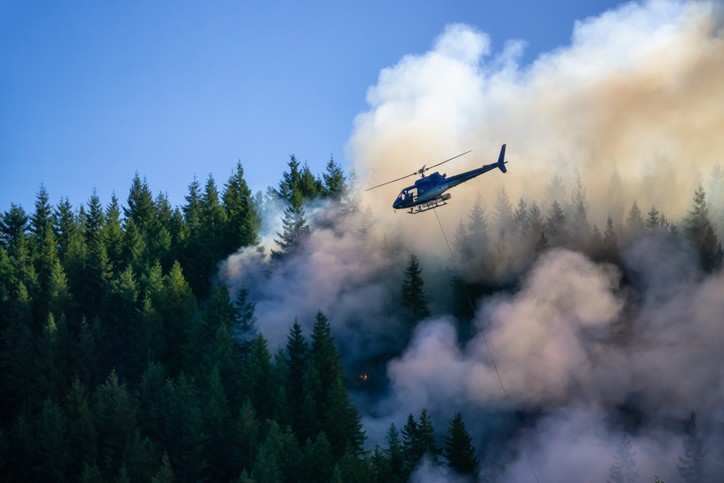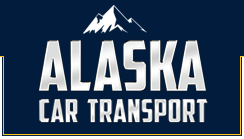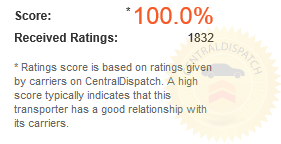Alaska’s wildfires
Alternate travel routes
Tips to stay safe during Alaska’s extended wildfire season
Final word

Alaska’s wildfires
Right now, there are wildfires burning in Alaska that are not to be taken lightly. In fact, as a result of these wildfires, the Department of Natural Resources has extended the wildfire season in Alaska to September 30th and Alaska Governor, Michael Dunleavy, has issued a disaster declaration.
The fact that the wildfire season has been extended from its normal end which is August 31st until the end of September means that anyone in Alaska will need permits until that date for any open burns of debris.
So far almost a hundred structures have been destroyed and hundreds of people have been evacuated from areas affected by the wildfires.
Right now, there are four major wildfires burning in Alaska near populated areas:
- MicKinley Fire – This fire is burning across over four thousand acres but is just about halfway contained at this point. It is near the town of Willow and a bit south of Talkeetna. It has burned through multiple homes and businesses so far.
- Caribou Lake Fire – This fire is the smallest of all but still very substantial and serious at nine hundred acres. It is only about a quarter contained at this point and it is located to the northeast of Homer.
- Swan Lake Fire – The Swan Lake Fire is burning across a hundred and fifty-seven thousand acres, so it is the biggest of these wildfires by far. Because it is so big it is only about twenty five percent contained at this point. This fire is closest to Cooper Landing, but it is affecting the entire Kenai Peninsula. This has crippled the tourism in the area as well as the fishing industry. People in the area have been to be ready to evacuate.
- Deshka Landing Fire – This fire is also near the town of Willow and is burning across fourteen hundred acres of land currently. It is about fifty percent contained at this point.
Now, those are the wildfires that are near populated areas. There are many other wildfires in Alaska going on right now in areas that are not near populations. In fact, there are two incredibly massive fires that are burning in Alaska right now which are considerably bigger than the Swan Lake Fire.
There is the Old Grouch Top Fire which covers over three hundred thousand acres just north of Iditarod. There is also the Frozen Calf fire which covers over two hundred and forty thousand acres just north east of Chalkyitsik.
Alternate travel routes
Right now, there are several areas that should be avoided at all costs. The first is the Kenai Peninsula. It is completely inaccessible at the moment and like will not be for several more weeks. Driving anywhere south of Anchorage is not recommended.
Route three in Alaska should be avoided anywhere south of Denali State Park as it is heavily affected by the McKinley fire and moderately affected by the Deshka fire.
Most importantly, make sure that you listen to news reports and traffic forecasts each and every day. Local authorities might close some roads entirely.
Tips to stay safe during Alaska’s extended wildfire season
The most important thing during a wildfire is to stay safe. You can use the following tips to stay out of harm’s way during a hurricane.
- Listen to any directions from police and emergency services – These are the trained professionals who know what is best in terms of safety in these situations – make sure you listen to them.
- Know the evacuation route – It is very important to be aware of the evacuation route before an emergency situation even occurs. You can find more information regarding Alaska’s evacuation routes and protocols here.
- Keep your windows closed – This should be obvious, but during a wildfire, make sure you keep your windows and doors shut.
- Clear the easily flammable sources away from near your home – Get rid of any wood, firewood, branches or anything that could easily catch fire and put it at least several hundred feet away from your home.
- Do not go home until you are told that it is safe to do so – This should be another obvious point but if you are evacuated, do not venture back home until you receive official notice that it is safe to do so.
- Shut off all gas sources in your home – Just in case the fire gets anywhere near your home, you should make sure that all the gas sources are turned off in order to prevent an ignition.
Final word
The wildfires that are currently burning in Alaska are a very serious situation. Unfortunately, there is not much you can do as an individual to help the containment of these fires but you can make sure that you and your loved ones are safe and sound during the wildfires.
Be sure that you always obey local laws regarding the prevention of wildfires as well. Open debris burns are particularly likely to be the cause of a wildfire so exercise caution and always get the proper permits first.


